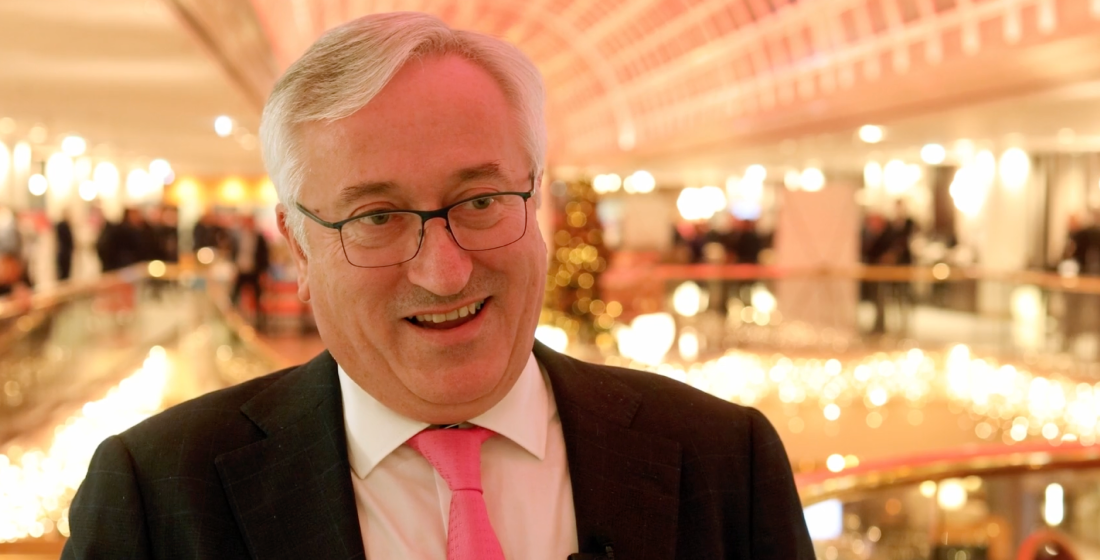Trade risk triggers
An executive summary of TXF's key global country risk ratings for December.

Key global risks into December. For latest TXF country risk ratings and methodology click here.
North America: President Trump’s tour of Asia in November was strategic in both economic and foreign policy terms. His approach to the region is to shore up his position against North Korea through trade and in so doing has made sure that aerospace and defence deals were agreed in China, South Korea and Japan amongst others. This serves to heighten tensions globally. While there is still an espoused intention to take any action against North Korea through the United Nations, the risks of miscalculation become much higher when so much is at stake. The President is encouraging South Korea to continue to conduct further military exercises in December and the risks in the region cannot be understated. Similarly, the US has taken a rigid line against Iran in the Middle East which has been used by Israel to justify a more aggressive stance against Hezbollah. Given that Russia is heavily involved in the Middle East’s fragile politics, this is another potential flashpoint. During December it is likely that the US stance towards the North America Free Trade Area will harden. While this is unlikely to create direct risks in the region, it does put at risk some of the positive economic effects of the relationship between the North American Countries. President Trump’s approval ratings are the lowest of any modern-day President, but this appears to be irrelevant to the President. The fact that the US Senate has given the President his first legislative success of his presidency will only serve to harden this apparently impervious position.
Asia: North Korea’s launch of a Hwasong-15 Intercontinental Ballistic Missile was its most sophisticated yet and has escalated tensions to a point where both miscalculation and intentional action to halt the “rogue” nation are more likely. Whether there is conflict or not, the fact is that the world will have to come to terms with a nuclear-armed North Korea. At its 19th National Party Congress President Xi’s philosophy to make China a global power again was enshrined into the constitution. Although this has heightened the authoritarian approach of the regime towards corruption, and even towards Hong Kong, it has shown little impact on the foreign policy doctrine of “hide your light, bide your time.” During Trump’s tour of Asia the strength of the Chinese military was on full display adding to its status as a trading power. President Trump came away with very little except an aerospace deal. China has moderated its position to some extent in the South China Sea, perhaps as a counter-balance to its policy towards North Korea – which is to keep the current regime in place. Japan has sharpened its rhetoric but is still largely deploying resources behind its self-defence and security forces at present.
Europe: The key risks in Europe at present are similar to those that existed in October. First, Germany has yet to from a coalition government and while this remains the case, Angela Merkel’s focus is on domestic rather than international issues. The prospect of new elections in 2018 remains a possibility but it is in neither the CDU-CSU’s nor the SPD’s interest to trigger more instability, not least because the likely outcome is more votes for the Alternative für Deutschland. Second, December will be a key month for Brexit negotiations. President Macron is focusing on closer integration of Europe, and the majority of EU members signed an agreement for Permanent Structured Cooperation (PESCO) in Europe, particularly in defence and security. Angela Merkel, despite being focused on domestic issues, is similarly rigid in her view that Europe has rules and that the UK must agree its terms of exit before trade talks begin. Despite the fact that the UK government has apparently agreed to pay a larger divorce bill, Ireland holds the key to whether or not trade talks will begin. It will not accept a hard border between Northern Ireland and the Republic but the UK government will not accept different rules for Northern Ireland for the rest of the UK. Meanwhile, the DUP hold the balance of power in Theresa May’s Minority government and while it does not want a hard border, nor does it want separate rules for Northern Ireland that align it more closely with the Republic than the UK. The deadlines are looming in December but it is unlikely that the UK and Europe can solve the Irish problem in this space of time and this presents a serious threat to the stability of the UK government.
Eurasia, Crimea and Russia: Russia may not have the level of military capacity that it had during the Cold War, but November showed the multitude of levels on which it extends its strategic influence – including accusing the US of imposing sanctions in order to swing big business in Russia against Vladimir Putin in the forthcoming election campaign. It continues to test missiles in its eastern states and while the World Cup may give it a platform to demonstrate its soft power, its first match is against Saudi Arabia and hence fraught with political irony. The Donbass remains a flashpoint with the risk of escalation high because it is already an armed conflict in which Russia-backed militants perpetually breach ceasefire agreements. For example, according to Ukrainian official sources, there were 26 attacks in a 24 hour period at the end of November. As Russia continues to back this multi-layered approach to conflict, including in cyber-security, the Crimea and the Baltic regions remain fragile with high risk of escalation. Similarly, as NATO states in eastern Europe become more aggressive in their own military build-up along the border, the risks of miscalculation on Europe’s borders increase.
MENA: The fragile situation in the Middle East was made obvious by several events during November. A Houthi missile fired from Yemen and targeting Riyadh airport was intercepted by Saudi Arabia. The missile was allegedly made in Iran and led to Saudi Arabia accusing Iran of an “act of war”. The new regime in Saudi Arabia is attempting to demonstrate its more moderate tendencies but is becoming more assertive in its stance towards Iran and tensions between the two states have soared. Given their backing from the US and Russia respectively, the implications of a conflict would likely be global rather regional.
Lebanon is critical to security in the region at present. Lebanese Prime Minister Saad al-Hariri recently resigned at the behest of Saudi Arabia who are attempting to destabilise the Iran-backed country. Hezbollah, a Shia Muslim group, will likely be the focal point of any potential sectarian conflict within the country, but will also play a key role in any regional conflicts. Israeli expectations that they would be destroyed as a result of their involvement in Syria were optimistic and as Assad’s forces gain ground in the conflict, battle-hardened Hezbollah troops will be returning to Lebanon. This will stoke an already tense situation between Israel and Lebanon. Israel has strong backing from the US and is taking a similarly aggressive stance towards Iranian military targets in Syria.
Latin America: The main risks in Latin American continue to be domestic instability such as that seen in Venezuela and discontent over political corruption and criminality. In Brazil, corruption has not improved under President Temer whose approval ratings now stand at 3% - the least popular President in Brazil’s history. Temer was facing serious charges by Brazil’s prosecutor general’s office of corruption, obstruction of justice and racketeering. However, he recently avoided any charges. In spite of this, his Presidency has been seriously weakened and he effectively a lame duck President. While in Colombia, 80% of the population see corruption as a greater concern than crime or insurgency. If voters cannot trust the political establishment to serve their interests then the peace deal with FARC may fall through and jeopardise prospects for long-term peace. In this sense, corruption and security in Latin America are symbiotic.
Sub-Saharan Africa: The big event during November in sub-Saharan Africa was the removal of President Mugabe as Zimbabwe’s leader after 37 years. The military removal of Mr Mugabe was not a “coup” although the former President was kept under house arrest. The military action was reportedly to prevent Mugabe’s wife, Grace, from achieving her political aspirations. The new President, Musaveni, has a difficult task to bring together the very young population of the country and give it a sense of economic and political hope; he has an equally difficult task to bring the country back into the economic and political fold globally. Elsewhere, Kenya’s election re-run was accompanied by police violence and internal conflict. Even though President Kenyatta is now in power, he lacks full democratic legitimacy and, in a country that is prone to political conflict, this is a threat to its longer-term domestic stability. Earlier in 2017, Jacob Zuma avoided a similar fate, but the makings of a political crisis in South Africa are still there. In West Africa, claims that Boko Haram had been defeated proved to be ill-founded and the Islamist insurgency seems to have gathered fresh impetus, particularly in the North East of Nigeria. A multilateral military response to the threat may be the only solution to the bloody conflict.





